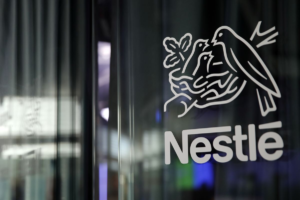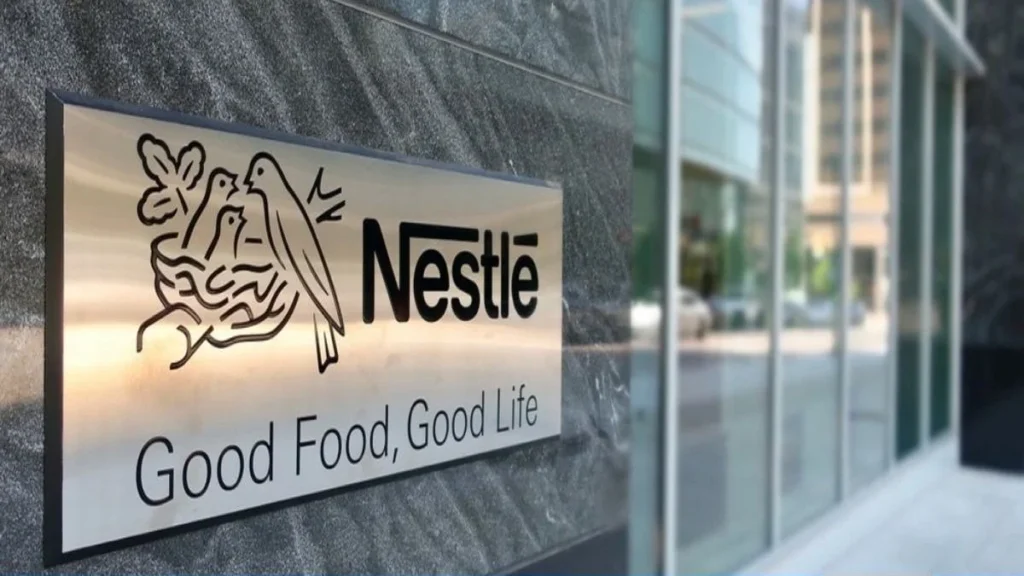Over the 2024 financial year, Nestlé Nigeria suffered a net loss of ₦164.6 billion, marking a more than 100% increase in losses compared to the prior year. The primary culprit: massive finance costs driven by naira devaluation. These costs overwhelmed operational gains and pushed the company’s shareholders’ equity deep into negative territory.
Strong Operational Performance Tarnished by Forex Shocks
Despite the fiscal setback, Nestlé experienced a sharp 75.2% rise in revenue, reaching nearly ₦959 billion. Operating profit climbed by 35.6%, hitting ₦167.9 billion, while EBITDA grew 45.2%—highlighting strong brand demand and operational efficiency under pressure.
Exchange Rate Losses Swallowed Profit Margins
The company’s finance charges surged by over 68%, totaling nearly ₦393 billion due to currency revaluation on significant foreign-currency obligations. With borrowing costs also rising—total debt climbed 62%—the finance burden outpaced profits, driving the massive net loss.
Asset Revaluation Mitigates Losses, but Equity Still Negative
Nestlé undertook a major fixed-asset revaluation—appraising its property, plant, and machinery at updated market values. This added roughly ₦150 billion in revaluation gains after tax and helped reduce its comprehensive loss to ₦14.6 billion, versus ₦79.4 billion in the prior year. Yet shareholders’ equity remained negative, indicating that liabilities still exceeded assets.
Q4 Marks Turnaround: Return to Profitability
The final quarter of 2024 offered a positive turn: Nestlé posted a net profit after tax of ₦19.7 billion, reversing a ₦36.4 billion loss in Q4 2023. This rebound signals that operations may be stabilizing and provides hope that 2025 could mark a recovery phase if currency conditions moderate and finance costs decline.

Liquidity Slump and Credit Risks
Despite solid revenue gains, cash reserves plunged 86.5% year‑on‑year to approximately ₦22.6 billion. Meanwhile, shareholder funds remained negative—around ₦92.3 billion—raising concerns about long-term solvency. Although total assets rose nearly 48%, growing liabilities and cash erosion intensified financial risk.
Strategic Investments and Workforce Expansion
Nestlé invested around ₦132 billion since 2023 to expand infrastructure and operations, including ₦72 billion in 2024 alone. It also grew its workforce by 8% to support production scaling and market reach. These moves underlined a long-term commitment despite operating headwinds.
Voice of Leadership: Resilience and Forward Planning
Company leadership underscored the strength of Nestlé’s brands and operations, citing strong topline growth and improved EBIT margins as evidence of core business resilience. The CEO highlighted the Q4 turnaround and reiterated confidence in ongoing strategic projects aimed at restoring profitability—even as macroeconomic challenges persist.
Broader Industry Pattern: Corporates Bear the Brunt of Devaluation
Nestlé’s losses reflect a broader phenomenon—many large Nigerian corporations reported foreign exchange losses running into hundreds of billions of naira, thanks to rapid currency depreciation. These losses also undermined dividend distributions, weakened equity bases, and triggered financial restructuring across the sector.
Implications for Shareholders, Suppliers, and Market Value
With negative retained earnings and shareholder equity, Nestlé cannot distribute dividends until profits rebuild and retained earnings return to positive. Suppliers face more pressure in negotiating payment terms as operating margins remain squeezed. Meanwhile, investor sentiment may stay cautious until liquidity and debt levels improve.
Outlook: Navigating 2025 Financial Hurdles
Recovery in 2025 hinges on several factors:
-
Stabilisation of the naira or reduction of revaluation volatility
-
Management of debt costs through refinancing or restructuring
-
Continued revenue growth and operational discipline
-
Rebuilding liquidity to support working capital and risk buffers
-
Remediation of negative equity once operations return to sustained profit
Summary of Key Metrics – 2024 vs. 2025
-
Revenue: +75.2% (to ~₦958.8 billion)
-
Operating profit: +35.6% (₦167.9 billion)
-
EBITDA: +45.2%
-
Finance costs: +68% (~₦392.8 billion)
-
Pre‑Tax loss: ~₦221.6 billion
-
Net loss: ~₦164.6 billion
-
Comprehensive loss: ₦14.6 billion
-
Q4 profit: ₦19.7 billion vs. loss in Q4 2023
-
Debt growth: +62% (~₦653.7 billion total)
-
Cash reserves: -86.5% (~₦22.6 billion)
-
Shareholder equity: negative (~₦92.3 billion)
Conclusion: Strong Business, Under Pressure
Nestlé Nigeria’s 2024 financial results reflect a company with strong operational momentum overwhelmed by macroeconomic volatility. Revenue growth and Q4 profit recovery show resilience, yet finance costs tied to foreign currency exposure drove a staggering loss, erased shareholder equity, and depleted liquidity.
Recovering from this position will require macro stability, disciplined financial restructuring, and operational consistency. If successful, Nestlé may rebuild its balance sheet and deliver renewed value to shareholders in the medium term. Let me know the next headline—I’ll apply the same polished, reader-first approach.







